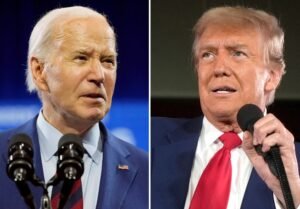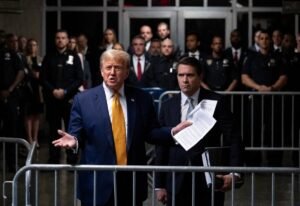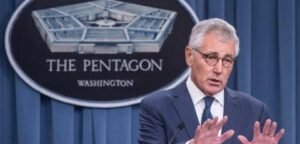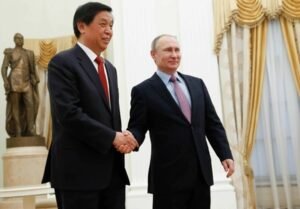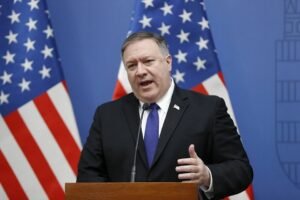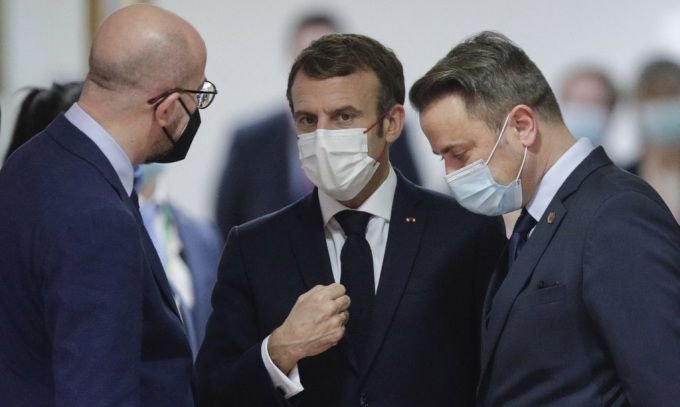
EU has a dilemma with Russia sanctions 4
Tensions between the West and Moscow have recently escalated, after US intelligence claimed that Russia was deploying about 100,000 soldiers near the Ukrainian border with plans to `attack` the country, accusations that Russia described as `crazy`.
Moscow affirmed that it has no plans to send troops across the Ukrainian border.
After the US accusations, European leaders also began to increase pressure on Russia.
`We believe that Russia is indeed preparing for a full-scale war against Ukraine,` Lithuanian Foreign Minister Gabrielius Landsbergis said, adding that such an attack would lead to `unprecedented` sanctions.
European Council President Charles Michel (left) talks with French President Emmanuel Macron (center) and Luxembourg Prime Minister Xavier Bettel at the EU Summit in Brussels, Belgium, on December 16.
However, according to Washington Post commentators Perry Stein and Quentin Aries, the EU’s strong warnings to Russia are `easier said than done`.
Any EU sanctions need to be agreed upon by all members, but the union has long been divided over how to handle relations with Russia.
The division is said to be clearly shown through the EU’s disagreement over the Nord Stream 2 project, a gas pipeline built to double the amount of natural gas from Russia passing through the region.
Some EU leaders believe that imposing sanctions on Russia while still building trade agreements with this country is a contradictory action.
When Russia annexed the Crimean peninsula in 2014, the EU responded with sanctions mainly to prevent 44 businesses and organizations and nearly 200 people from borrowing money from European banks.
Because the EU is an important trading partner of Russia, the bloc’s sanctions are likely to have more severe consequences for Russia than the US embargo.
However, close economic ties between the EU and Russia mean sanctions could affect Europe itself.
`The EU’s current sanctions are strong enough to attract attention, but not drastic enough to create the feeling that they are trying to corner their opponents. That is their intention,` said Christie, a former economist.
Francesco Giumelli, associate professor of international relations at the University of Groningen in the Netherlands, said that this time the EU will have to think about different types of sanctions.
Despite the challenges, many analysts and diplomats believe that the current context may cause the EU to act tougher against Russia than in 2014. Over the past 7 years, Ukraine has drawn closer and closer to the West,
Gwendolyn Sasse, senior expert on Eastern Europe at the Carnegie Endowment for International Peace, said that this time the tension with Russia is an opportunity for the EU to demonstrate its strength in the midst of crisis.
`The important thing is whether the EU has the ability to act, as well as demonstrate a strong and cohesive foreign policy when something happens,` Sasse said.
During the meeting on December 17, EU members agreed to extend economic sanctions against Russia for another 6 months, but no new sanctions have been introduced.
Reacting to this information, Kremlin spokesman Dmitry Peskov affirmed that Russia would `retaliate`.
The Kremlin spokesman emphasized that Russia considers the sanctions unilaterally imposed by Europe to be a violation of international law.
